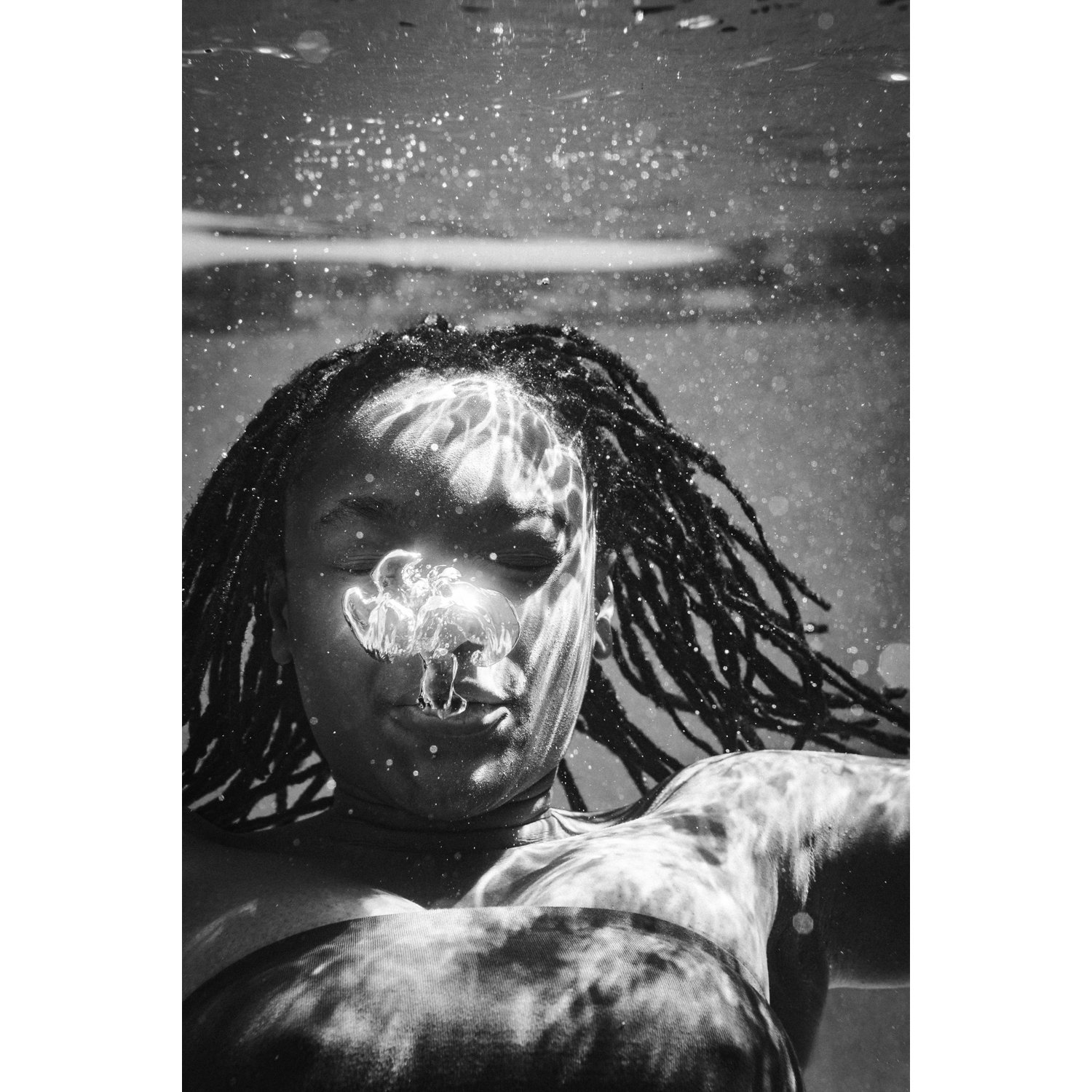no get enemy by Yemi Kuku
Issue 174
I was 10 years old when I first learned how to swim. My brother and I had begged our parents to let us take those swim lessons at the local community center. We were the two oldest kids in the course, and naturally in our corner of California, we were the only non-white kids as well. That weekly class and the interactions we experienced there, were one of the first memories I have of being made aware of my Blackness—being made aware of the space I was taking up. Owning my own space has been a complicated subject for me and exploring how to exist unapologetically in the public square is a large part of the work I desire to make. As I continue to navigate questions of my identity as Yoruba, Black, American, etc., water spaces have become a tesseract for me to locate the meaning of home, belonging and owned space.
I began this project as an experiment motivated by two impulses. First, I felt I simply hadn’t seen enough images of Black people in or around water that didn’t also involve drowning or death. Second, and more significantly, I wanted to observe and study human breath. It’s clear to me in retrospect that breath and the suppression of it was heavy on my mind in these last several years, never sure whether that breathing was being interrupted by the coronavirus, police violence, or my spiraling mental health during this period. It also never occurred to me that I could potentially make these observations and remain out of water myself—I knew I was always going to be in the water experiencing what my collaborator-swimmers were. And each swimmer lives at the intersection of their own identities as Americans living in cities like Oakland, Houston or Pasadena and also existing in the Black Diaspora as Guyanese, Nigerian, Cuban, and unknown. With this series of underwater portraits, interviews, and some of my documentary work exploring black communities tied to the water, I set out to try to understand the often contested and policed public and private spaces that black people navigate. In water we can slow time, defy gravity, and observe the celestial. In water there’s room for the quiet and the rage. In water we can heal. From the Ganvie in Benin to the Gullah-Geechee communities of the Atlantic, the navigation of Blackness in water space is an act of remembrance, power, healing, and joy. Water will always make space.
Yemi Kuku (he/him) lives and works in Pasadena, CA.
yemikuku.com | @yemididit
Tunmi 3, 2023
Mark 2, 2022
Amanda, 2023
Robert, 2023
Tunmi, 2023
Chase, 2022
Rob 2, 2023
Mark 4, 2022
Tunmi 4, 2023
Tunmi 2, 2023
Rob 4, 2023
Mark 3, 2022
Tunmi 5, 2023
Mark, 2022
All images ©Yemi Kuku














